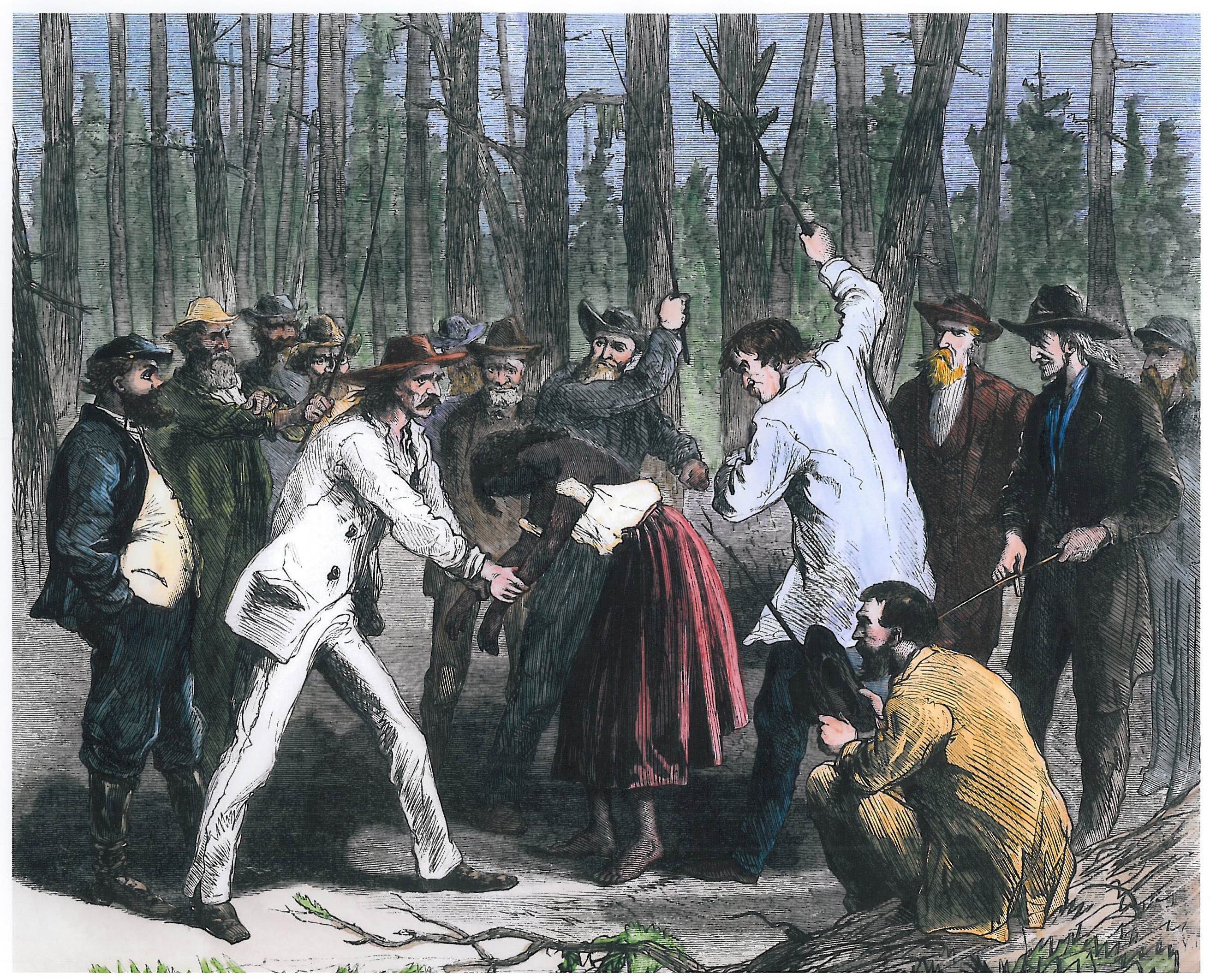PTAVE, June 14, 2011
In effect, the school's mistreatment of its students tends to exonerate families' similar mistreatment of their children. The favor is reciprocal. It's a winning formula. All parties can then soothe their consciences by camouflaging their questionable behaviors behind the flag of tradition.It should be recognized, however, that the St. Augustine High School disciplinarians did not originate their student punishment tradition. They found it ready-made and borrowed it. Now, in the interest of honesty and historical accuracy, they should at least give credit where credit is due. Perhaps, after viewing and contemplating the illustration at the bottom of this page, they will reevaluate their entire policy on student discipline. Let's hope so.
The following excerpt from "St. Augustine High School (New Orleans)": Wikipedia, the free encyclopedia will fill the reader in on the details of the current controversy concerning St. Augustine's disciplinary methods.
Ethos and DisciplineThroughout its history St. Augustine has maintained a tradition of strong discipline, previously achieved in part through the use of corporal punishment. Time magazine reported in 1965 that "the atmosphere at St. Aug's is warm but strict. Misbehaving students are whacked with an oak paddle".
The school's founding principal, Fr Matthew O'Rourke, has said that the discipline instilled by what he called the "Board of Education" was important because learning could not go on without it. With it, students were so well-behaved that visitors to the campus were amazed.
Basketball star Hollis Price, who attended the school in the late 1990s, states that he got paddled for talking in class, "on the court, everywhere", and that his "aching backside" taught him the value of discipline.
The practice of corporal punishment was suspended at St. Augustine in 2011 on the orders of Archbishop Joseph Aymond, who claimed the practice was inconsistent with Catholic teachings. An archdiocisean review conducted by Dr. Monica Applewhite, described as an expert in safe environment training and child protection, determined that "the school's corporal punishment was both excessive and unreasonable and the school did not have effective safeguards to prevent future abuse."
The archbishop's decision to abolish paddling created uproar at the school, among students and teachers as well as former students. On February 24, 2011, a four-hour "town hall" meeting was held in the school gymnasium, at which students and alumni mounted an "impassioned defense" of corporal punishment, stating that it had been valuable for them in teaching that there are consequences to actions. Parents and teachers also attended and opposed the ban.
At the meeting, the Principal said that since paddling stopped there had been an increase in bullying and detentions at the school. In response to a statement by the archbishop that no other Catholic schools in New Orleans now employed corporal discipline, District Court Judge Kern Reese, an alumni of the school, said, "we are not everyone else. We don't care about everyone else. This (corporal punishment) works at St. Augustine".
On March 26, 2011, more than 500 students, parents and others marched on an archdiocese office to deliver a message in favor of paddling. President of the student body Jacob Washington said at the march that the archbishop was "trying to fix something that's not broken". The school's President, Rev. John Raphael, objected to the archdiocese overruling the school's own board and said that the issue was about the rights of African-American parents to educate and discipline their children in their own traditions.

TEACHING RESPECT FOR AUTHORITY
Slave girl learns a lesson she'll never forget.
SEE RELATED: "...(C)orporal punishment is centered in the old Confederacy and walks a narrowing path..."
